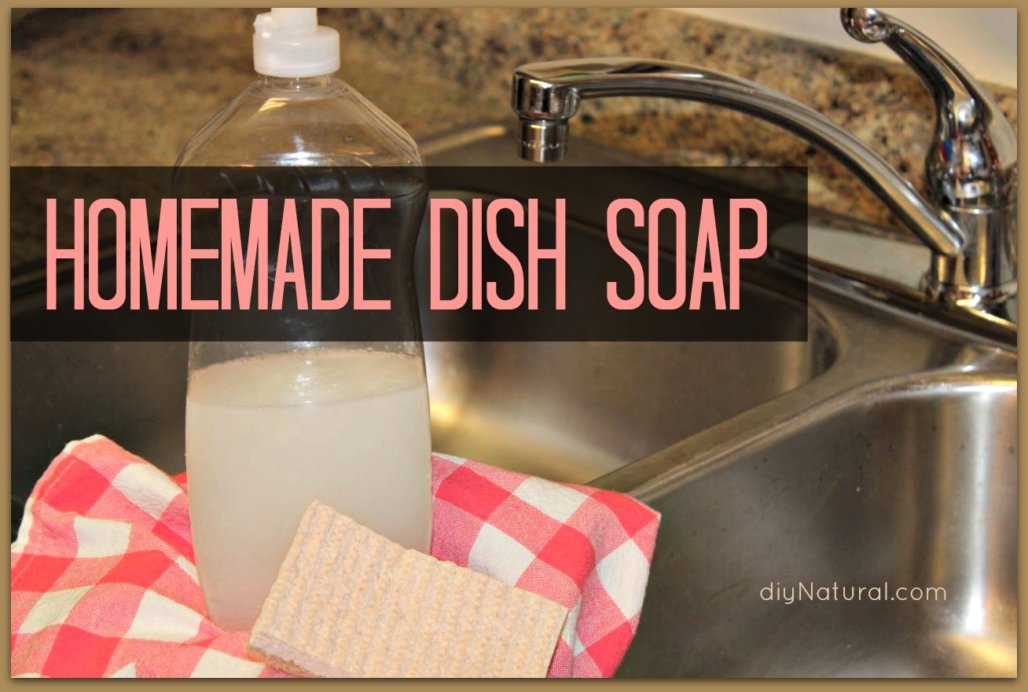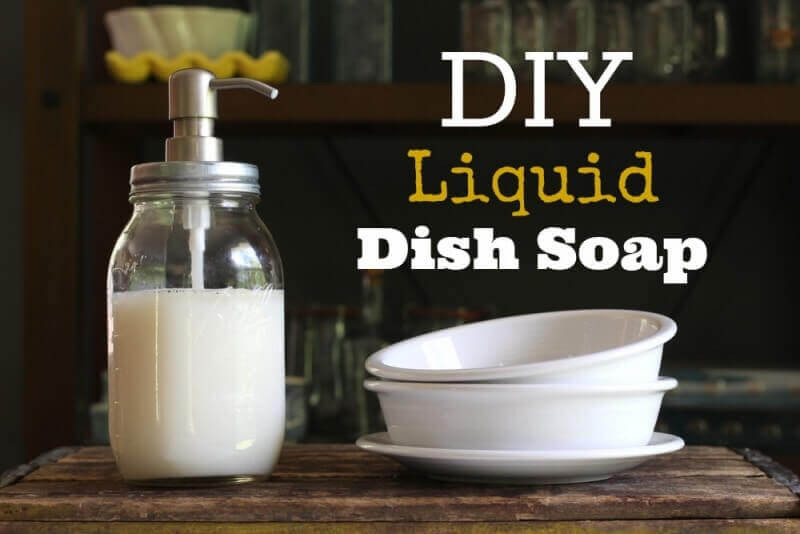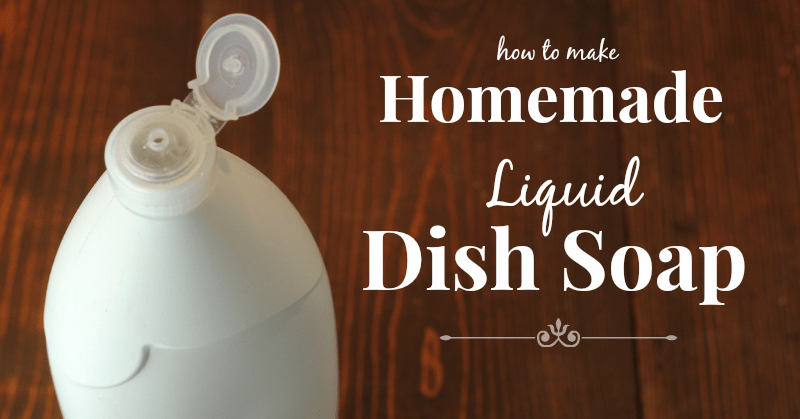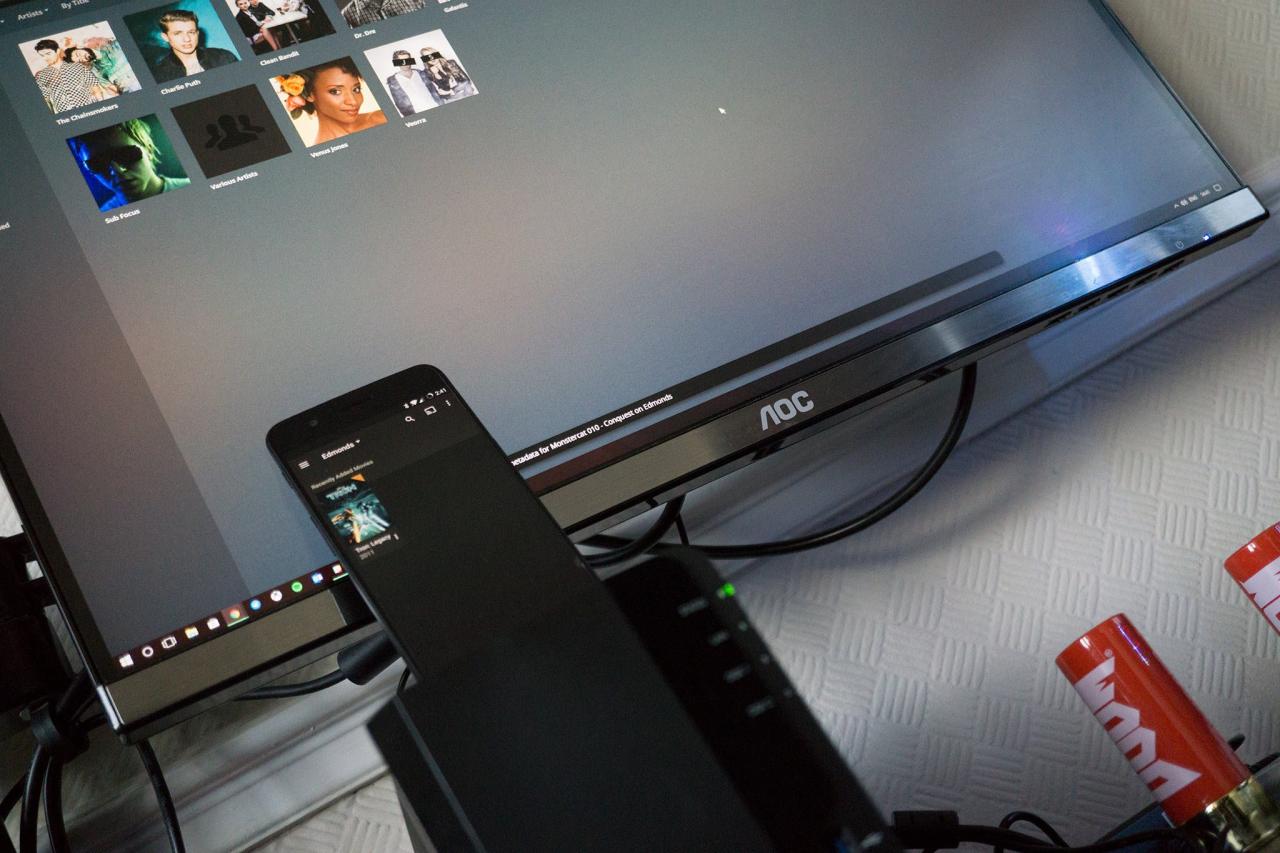DIY dish soap offers a natural and eco-friendly alternative to commercially produced detergents. By making your own dish soap, you can control the ingredients, ensuring a gentle and effective cleaning solution for your dishes and surfaces. This approach not only minimizes your environmental impact but also allows you to personalize your dish soap with specific scents and properties.
This comprehensive guide explores the benefits of DIY dish soap, provides detailed recipes for various cleaning needs, and addresses common questions and concerns. From basic recipes to advanced formulations, you’ll discover how to create a customized dish soap that meets your unique cleaning requirements. We’ll also delve into the safety considerations, storage tips, and cost-effectiveness of making your own dish soap.
Introduction to DIY Dish Soap

Making your own dish soap is a rewarding and environmentally conscious choice. Not only can you customize the scent and ingredients to your liking, but you can also save money and reduce your reliance on commercially produced products that can be harmful to the environment.
Environmental Impact of Commercial Dish Soaps
Commercial dish soaps often contain harsh chemicals that can be detrimental to both human health and the environment. These chemicals can persist in waterways, harming aquatic life and disrupting ecosystems. Many conventional dish soaps also contain synthetic fragrances and dyes that contribute to pollution and can trigger allergies.
Common Ingredients Used in DIY Dish Soap Recipes
DIY dish soap recipes typically utilize natural and biodegradable ingredients that are gentle on both your dishes and the planet. Here are some common ingredients:
- Castile Soap: A plant-based soap made from olive oil or other vegetable oils, Castile soap is a versatile and effective cleaning agent.
- Vegetable Glycerin: A natural humectant that helps to keep the soap from drying out and adds a touch of moisture.
- Essential Oils: These oils add fragrance and can also have antibacterial and antifungal properties. Some popular choices include lemon, lavender, and tea tree oil.
- Water: Used to dilute the soap and create a more liquid consistency.
- Baking Soda: A natural abrasive that can help to remove stubborn stains and grease.
Advanced DIY Dish Soap Recipes
Ready to take your dish soap game to the next level? Explore the world of advanced DIY dish soap recipes, incorporating natural ingredients for added benefits and unique properties.
Antibacterial Dish Soap
This section will discuss the science behind antibacterial dish soap and provide a recipe using essential oils with antibacterial properties.
Antibacterial agents are substances that kill or inhibit the growth of bacteria.
- Tea Tree Oil: A natural antiseptic with proven antibacterial activity against a wide range of bacteria.
- Lavender Oil: Possesses antimicrobial properties and can help combat bacteria, fungi, and viruses.
- Lemon Essential Oil: Known for its natural cleaning and disinfecting properties.
Recipe:
- 1 cup Castile soap
- 1 cup distilled water
- 1 tablespoon of your chosen essential oil (Tea Tree, Lavender, or Lemon)
Instructions:
- Combine all ingredients in a glass spray bottle.
- Shake well to mix thoroughly.
- Use as needed for washing dishes.
Note: Always dilute essential oils before using them in cleaning products. Essential oils can be strong and may irritate sensitive skin.
Safety and Storage Considerations
While DIY dish soap offers a cost-effective and eco-friendly alternative, it’s essential to prioritize safety and proper storage to ensure both effectiveness and longevity. This section addresses key safety precautions, storage guidelines, and disposal methods for leftover ingredients or expired soap.
Safety Precautions
It’s crucial to exercise caution when making and using DIY dish soap. Here are some essential safety precautions:
- Always wear gloves when handling ingredients, especially those that can irritate the skin, such as essential oils or concentrated cleaning agents.
- Avoid contact with eyes and skin. In case of accidental contact, immediately rinse the affected area with plenty of water.
- Work in a well-ventilated area to prevent inhaling fumes, especially when using essential oils or other volatile ingredients.
- Keep DIY dish soap out of reach of children and pets.
- Do not mix different cleaning products, as this can create hazardous fumes or reactions.
- Always test a small amount of DIY dish soap on an inconspicuous area of a dish before using it on the entire surface. This ensures compatibility with the dish material and prevents any damage.
Storage Guidelines
Proper storage is essential to maintain the effectiveness and longevity of your DIY dish soap. Here are some guidelines:
- Store DIY dish soap in airtight containers to prevent evaporation and contamination.
- Label containers clearly with the contents, date of preparation, and any specific instructions for use.
- Store DIY dish soap in a cool, dry place, away from direct sunlight and heat sources.
- Avoid storing DIY dish soap near food or other edible items.
- DIY dish soap may have a shorter shelf life compared to commercially available dish soap. It’s generally recommended to use it within 2-3 months for optimal effectiveness.
Disposal Methods
When disposing of leftover ingredients or expired DIY dish soap, it’s important to follow environmentally friendly practices:
- Dilute leftover ingredients with water before pouring them down the drain. This helps prevent clogging and reduces the impact on the environment.
- Expired DIY dish soap can be poured into a compost bin, as it will decompose naturally.
- Alternatively, expired DIY dish soap can be used for cleaning surfaces like floors, counters, or outdoor furniture.
- Avoid pouring expired DIY dish soap directly into the garbage, as it can attract pests and create unwanted odors.
DIY Dish Soap Variations
Beyond the basic recipe, you can customize your DIY dish soap to suit your needs and preferences. Adding essential oils, natural colorants, or specific cleaning agents can enhance the effectiveness and appeal of your homemade dish soap.
Essential Oils
Essential oils can add a pleasant scent and potential antimicrobial properties to your dish soap.
- Benefits: Essential oils like lemon, tea tree, and lavender can naturally deodorize, disinfect, and add a refreshing aroma to your dish soap.
- Drawbacks: Some essential oils, especially citrus oils, can be photosensitive, meaning they can make your skin more sensitive to sunlight. It’s essential to use essential oils sparingly and test a small area of skin before using them in a full batch of dish soap.
Natural Colorants
Natural colorants can add a splash of color to your DIY dish soap, making it visually appealing.
- Benefits: Natural colorants, such as beetroot powder, turmeric, and chlorophyll, are a safe and eco-friendly alternative to artificial dyes. They can add a vibrant touch to your dish soap while avoiding harsh chemicals.
- Drawbacks: Natural colorants may not be as vibrant or long-lasting as synthetic dyes. They can also slightly alter the scent of your dish soap.
Cleaning Properties
You can customize your DIY dish soap for specific cleaning tasks by adding ingredients with targeted properties.
- Grease Cutting: Adding a tablespoon of borax to your dish soap recipe can enhance its grease-cutting power. Borax is a natural mineral that helps break down grease and grime.
- Antibacterial: A few drops of tea tree oil or a tablespoon of white vinegar can add antibacterial properties to your dish soap, making it effective for cleaning surfaces and dishes.
DIY Dish Soap Variations Summary
| Type | Description | Benefits | Drawbacks |
|---|---|---|---|
| Essential Oil Dish Soap | Dish soap infused with essential oils for fragrance and potential antimicrobial properties. | Pleasant scent, natural deodorizing and disinfecting qualities. | Photosensitivity (especially citrus oils), potential skin irritation. |
| Natural Colorant Dish Soap | Dish soap with natural colorants for a vibrant visual appeal. | Safe and eco-friendly alternative to artificial dyes, adds a splash of color. | May not be as vibrant or long-lasting as synthetic dyes, can slightly alter the scent. |
| Grease-Cutting Dish Soap | Dish soap with added borax for enhanced grease-cutting power. | Effective for breaking down grease and grime. | None. |
| Antibacterial Dish Soap | Dish soap with added tea tree oil or vinegar for antibacterial properties. | Effective for cleaning surfaces and dishes, helps eliminate bacteria. | None. |
Cost Comparison

Making your own dish soap can be a cost-effective way to clean your dishes while saving money. The cost of DIY dish soap compared to commercially available options depends on several factors.
Factors Influencing the Cost of DIY Dish Soap
The cost of DIY dish soap is primarily influenced by the price of ingredients and the complexity of the recipe.
- Ingredient Prices: The cost of ingredients can vary depending on the brand, quality, and availability. Some ingredients, such as castile soap, are readily available at a reasonable price, while others, like essential oils, can be more expensive.
- Recipe Complexity: More complex recipes often require more ingredients, leading to a higher overall cost. For example, recipes that call for multiple essential oils or botanical extracts will generally be more expensive than those that use only basic ingredients.
Long-Term Cost Savings of Making DIY Dish Soap
Making your own dish soap can result in significant long-term cost savings.
- Reduced Spending on Commercial Dish Soap: By making your own dish soap, you eliminate the need to purchase commercial dish soap, saving you money over time.
- Bulk Purchasing: Many ingredients for DIY dish soap, like castile soap, can be purchased in bulk, further reducing the cost per use.
Cost Comparison of DIY Dish Soap vs. Commercial Dish Soap
Here’s a simple comparison of the costs:
| Dish Soap Type | Estimated Cost per Use |
|---|---|
| Commercial Dish Soap (Average) | $0.10 – $0.20 |
| DIY Dish Soap (Basic Recipe) | $0.05 – $0.10 |
Note: These are estimations, and actual costs can vary depending on the specific ingredients used and the price of the ingredients in your area.
DIY Dish Soap Projects
DIY dish soap projects are a fun and rewarding way to personalize your cleaning routine and potentially save money. You can experiment with different scents, colors, and ingredients to create unique and effective dish soaps.
DIY Dish Soap Gift Sets
Creating a DIY dish soap gift set is a thoughtful and practical present for friends, family, or housewarming parties. These sets can be customized to reflect the recipient’s preferences.
Here are the steps involved in creating a DIY dish soap gift set:
- Choose your scents: Select a variety of essential oils or fragrance oils that complement each other. Popular choices include citrus, lavender, and rosemary.
- Prepare the dish soap: Use your favorite DIY dish soap recipe or a pre-made base.
- Add the scents: Carefully blend the essential oils or fragrance oils into the dish soap. Start with a few drops and add more if needed.
- Package the soap: Pour the dish soap into attractive bottles or jars. Label them with the scent and ingredients.
- Add extras: Include a small sponge or dishcloth, a hand-written card, and a small gift tag.
DIY Dish Soap Experimenting with Different Scents
Experimenting with different scents is a fun way to explore the possibilities of DIY dish soap. You can create a variety of unique and personalized soaps by combining different essential oils and fragrance oils.
- Start with a base recipe: Begin with a basic DIY dish soap recipe that you enjoy.
- Choose your scents: Select a variety of essential oils or fragrance oils that you find appealing. Consider experimenting with different scent families, such as citrus, floral, herbal, and woody.
- Create a scent profile: Develop a scent profile for your dish soap. Consider the overall mood you want to create, such as refreshing, calming, or invigorating.
- Experiment with combinations: Mix and match different essential oils and fragrance oils to create unique and personalized scents. Keep a record of your combinations so you can recreate your favorites.
- Test your scents: Wash your dishes with your new soap and see how the scents perform. Adjust the amounts of essential oils or fragrance oils as needed.
Troubleshooting and FAQs

Making your own dish soap can be a rewarding experience, but it’s not always smooth sailing. You might encounter some bumps along the way. This section will address common problems you might face while making DIY dish soap and answer frequently asked questions to help you troubleshoot and get the best results.
Common Problems and Solutions
- Dish Soap Is Too Thin: This often happens when you use too much water or a low-quality soap base.
- Solution: Reduce the amount of water in your recipe, or try a different soap base, such as a Castile soap or a liquid soap base specifically designed for dish soap.
- Dish Soap Is Too Thick: This can occur when you use too much soap base or when the soap base has been stored improperly and has thickened.
- Solution: Add more water to your recipe or try using a thinner soap base. If the soap base has thickened, you can try warming it gently to thin it out.
- Dish Soap Doesn’t Lather: This can be caused by using too much essential oil or a low-quality soap base.
- Solution: Reduce the amount of essential oil or try a different soap base. You can also add a small amount of glycerin to your recipe, which can help increase lathering.
- Dish Soap Leaves a Film: This could be due to hard water, using too much soap base, or using a soap base that is not specifically designed for dish soap.
- Solution: Use a water softener or add a small amount of vinegar to your rinse water. You can also try using a different soap base.
- Dish Soap Has an Unpleasant Odor: This could be due to using a low-quality soap base, essential oil, or using an ingredient that has gone bad.
- Solution: Try a different soap base or essential oil. Be sure to use fresh ingredients and store them properly.
Frequently Asked Questions
- Can I use any type of soap base for dish soap? Not all soap bases are created equal. Castile soap is a good option for dish soap, but other liquid soap bases specifically designed for dish soap are also available.
- How long does DIY dish soap last? Properly stored, DIY dish soap can last for several months. Store it in a cool, dark place and avoid direct sunlight.
- Can I add essential oils to my dish soap? Yes, you can add essential oils to your dish soap. However, use them sparingly, as too much essential oil can make the soap less effective or even irritate your skin.
- Is DIY dish soap safe for the environment? Most DIY dish soap recipes are biodegradable and safe for the environment. However, it’s always a good idea to check the ingredients of your soap base and essential oils to ensure they are environmentally friendly.
- Can I make DIY dish soap with natural ingredients? Yes, you can make DIY dish soap with natural ingredients like Castile soap, baking soda, and essential oils.
- How do I know if my DIY dish soap is working? You should be able to easily clean dishes with your DIY dish soap. If it doesn’t lather well or leave a film, you might need to adjust the recipe.
Final Review
Creating your own dish soap is a rewarding experience that allows you to take control of your cleaning products and reduce your environmental footprint. By embracing natural ingredients and simple recipes, you can enjoy a cleaner home while contributing to a healthier planet. Whether you’re looking for a basic dish soap or a customized solution with specific properties, this guide provides the information and inspiration to embark on your DIY dish soap journey.
Making your own dish soap is a great way to save money and reduce waste. You can even get creative with your ingredients and add essential oils for a pleasant scent. If you’re looking for another fun DIY project, you might want to check out this guide on diy beads.
After making your own dish soap and beads, you’ll be a true DIY master!



